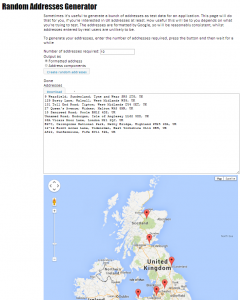
I’ve heard this phrase before, but it’s never applied to me until now. This afternoon I was searching for a snippet of LoadRunner information when I came across a LoadRunner blog that I hadn’t seen before. I read a couple of articles when one in particular caught my eye. The website http://easyloadrunner.blogspot.co.uk by Raviteja Gorentla had one article in particular that interested me.
Article 1
The article “New Release of LoadRunner 12 version” describes in detail how the author met HP at the Discover conference in Barcelona and worked with them on the beta evaluation before it was released. This all sounded very familiar, so I looked at my own article, “First Look at LoadRunner 12” on the Trust IV blog. The text was identical. The plagiarist hadn’t even had the decency to cite the original author (me) or include a link to the Trust IV website.
Article 2
I did a quick trawl of the plagiarist’s website and found numerous other articles, some of which seemed familiar. For example “How to use JavaScript in your HP LoadRunner scripts” is a straight copy of Malcolm Isaac’s article from the HP LoadRunner and Performance Center blog.
Article 3
I looked a little further and the article “Sequential Random Unique Each iteration, Each occurrence in Load Runner” was taken from Sindu Bindu’s website and the article entitled “LOADRUNNER VUGEN PARAMETERIZATION” (http://www.sindubindu.com/2012/04/loadrunner-vugen-parameterization.html – Link no longer available). Even the images were taken from the original article because the screenshots showed a distinctive purple colour on the task bar.
Article 4
The next page that I looked at was “Action files in LoadRunner”, a very short article, describing the purpose of the three commonly used sections in a LoadRunner script. This also looked as if it had been copied from Sindu Bindu’s website. “Action files in Loadrunner” (http://www.sindubindu.com/2012/03/action-files-in-loadrunner.html – Link no longer available). This same content was also duplicated on three separate scribd pages.
So far all the articles that I’d seen had been taken from other people’s websites. No original source or author was ever cited, but Raviteja had thoughtfully put a copyright statement at the bottom of his pages to protect ‘his’ content from people like him.
Sadly Raviteja’s efforts were in vain. Three other “copy cats” appeared to have reproduced his content on their scribd pages. The “Action Files in LoadRunner” document is also reproduced in:
- “Performance Testing Tips” by jenadebisanker
who also seems to have posted documents from Tata, Starbase and IBM. - “Performance Testing Tips” by ilaaaannnn
who has published HP and Infosys documents as well as exam cheat sheets. - “Performance Testing Tips” by Sai Krishna
who has posted HP, IBM and Infosys documentation online.
So now you know why it’s so hard to “Google” for the correct answer to a performance testing problem. Unscrupulous testers are ripping off other people’s content and passing it off as their own. Next time you hire a big offshore provider, try to make sure that you don’t get Ravita, Janede, Sai or Ilaaaannnn working for you. I’m not sure that they know what they’re doing.

